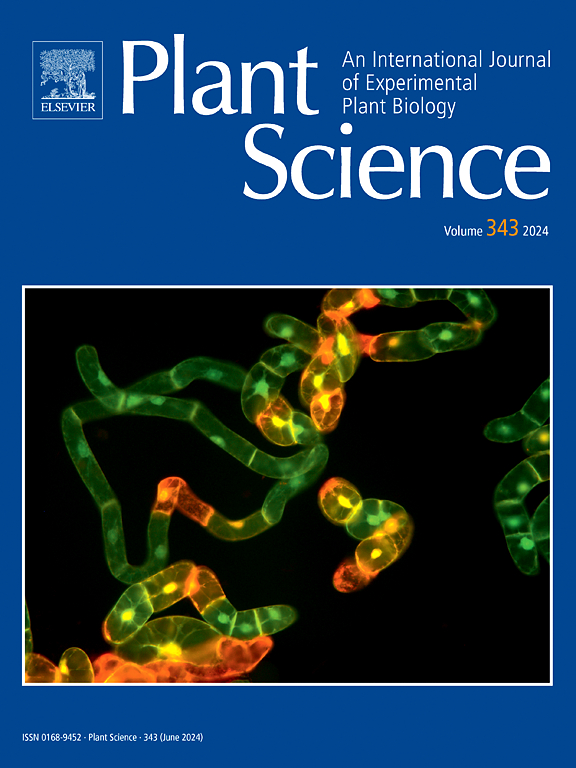盐生杜莎藻中精氨酸生物合成失去 PII 依赖性控制
IF 4.2
2区 生物学
Q2 BIOCHEMISTRY & MOLECULAR BIOLOGY
引用次数: 0
摘要
在蓝藻和大多数古细菌中,Arg 通过对控制酶 N-乙酰-L-谷氨酸激酶(NAGK)的异位抑制作用来调节其形成。虽然与其他绿藻相比,盐生杜纳藻中 PII 蛋白的表达量有所减少,但该蛋白对 DsNAGK 活性的潜在影响仍不清楚。我们在这里进行了耦合酶测定和表面等离子体共振分析,结果表明 DsNAGK 受 NAG 激活,受 Arg 抑制,但不受 DsPII 控制。此外,DsPII 很可能失去了其作为有效谷氨酰胺传感器的功能。用衣藻 PII 的 C 端取代 DsPII 的 C 端,可恢复重组 DsPII 蛋白对谷氨酰胺的敏感性,这表明靠近 Q 环的 C 端残基对 PII 功能的重要性。本研究从 NAGK 控制与进化过程中获得耐盐性之间的关系的角度讨论了这些发现。本文章由计算机程序翻译,如有差异,请以英文原文为准。
Loss of PII-dependent control of arginine biosynthesis in Dunaliella salina
In cyanobacteria and most Archaeplastida, Arg regulates its formation via allosteric inhibition of the controlling enzyme, N-acetyl-L-glutamate kinase (NAGK) that requires PII protein to properly sense the feedback inhibitor. Although PII expression has been shown to be reduced in Dunaliella salina compared to other green algae, the potential impact of this protein on DsNAGK activity remains unclear. We here performed coupled enzyme assay and surface plasmon resonance analysis and show that DsNAGK is activated by NAG and inhibited by Arg but is not controlled by DsPII. Moreover, DsPII has likely lost its function as an effective glutamine sensor. Replacement of the C-terminus from DsPII with the C-terminus from Chlamydomonas PII restored sensitivity to glutamine in a recombinant DsPII protein, demonstrating the importance of C-terminal residues close to the Q-loop for PII functions. The findings are discussed in the context of the relationship between NAGK control and the acquisition of salinity tolerance during evolution.
求助全文
通过发布文献求助,成功后即可免费获取论文全文。
去求助
来源期刊

Plant Science
生物-生化与分子生物学
CiteScore
9.10
自引率
1.90%
发文量
322
审稿时长
33 days
期刊介绍:
Plant Science will publish in the minimum of time, research manuscripts as well as commissioned reviews and commentaries recommended by its referees in all areas of experimental plant biology with emphasis in the broad areas of genomics, proteomics, biochemistry (including enzymology), physiology, cell biology, development, genetics, functional plant breeding, systems biology and the interaction of plants with the environment.
Manuscripts for full consideration should be written concisely and essentially as a final report. The main criterion for publication is that the manuscript must contain original and significant insights that lead to a better understanding of fundamental plant biology. Papers centering on plant cell culture should be of interest to a wide audience and methods employed result in a substantial improvement over existing established techniques and approaches. Methods papers are welcome only when the technique(s) described is novel or provides a major advancement of established protocols.
 求助内容:
求助内容: 应助结果提醒方式:
应助结果提醒方式:


